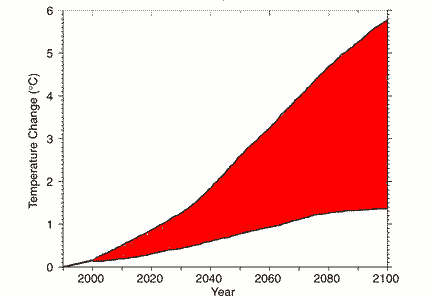

Any honest appraisal of the way modern society enters the third decade of the twenty-first century must indeed be cautious. Certainly brilliance has shown through periodically in the ten thousand years of human civilization, but senseless waste threatens to overshadow the genius. There seems no heed in the harvest of our forests or our seas. Our population grows at the cost of other species. Petroleum production climbs steadily to a peak even as increasing industrial and automobile emissions befoul the air and dangerously alter Earth's exchange of heat with the sun. Whoever's driving this rig is either asleep at the wheel or forgotten it's moving.
Stewardship of the biosphere does not need to be such a difficult proposition. With our planet's wide diversity of natural resources, life forms, and climatic conditions, maintaining a veritable paradise on Earth is entirely within the reach of human enterprise and imagination. There are efficient and practical ways of managing natural resources while also keeping the air and water clean. If we can put a man on the moon or drop a remote control lab on the surface of Mars, surely we can nurture the watershed, maintain the ozone layers, conserve the soil, husband the forests, find clean, efficient energy sources, answer poverty, and grant the basics of life to every man, woman, and child. These feats are not outside our abilities or our economics.
And yet, more and more, we are seeing projections for sustained economic recession driven by poor natural resource management and long-term environmental stress. What will climate change eventuate? What happens when the price of gasoline doubles, then doubles again? Can we really pump the world's aquifers dry? The answers to questions like these are difficult without qualification. No one can predict what the next one hundred years will bring, wondrous invention or social collapse. But to deny the implications of global warming or to think business as usual will solve the economics of fossil fuel depletion is foolhardy. Climate Change is a clear and present danger with far worse potentials than any terrorist threat. Energy stresses will only complicate the problem. Still no scenario is predestined. We can control our fate. That is the point of the essays and articles that link from the table of contents below. We must prepare for all probabilities, gather the information, put the pieces together, and find a thoughtful way to guide and nuture a planet containing many billion inhabitants and vast natural resources into the future.
In the end, the full potential of human civilization can not be realized until we recognize our place in the entire spectrum of living things. We are not apart, but implicate in the design. We must match our achievements in science and technology with a comensurate humanity. We must express our vast intellectual genius with a grace equal to its imagination. And foremost, we must respect the organic integrity of our planet home. This is our real challenge; understanding that regardless of culture, race, or belief, we are all first earthlings. Clean air, clean water, and diveristy in the community of life are essential to our survival.
WHEN WE LOOK BACK ON THE LAST HALF CENTURY, one thing is patently clear. Despite increasing evidence and alarm for global warming, despite growing concern for peaking oil production, we have burned more petroleum each ensuing day with no regard for the environmental or economic costs. Another ten years of this would be homicidal.
| Year | USA: million barrels daily | World: million barrels daily | USA Percentage of total | World CO2 Emissions: billion tons annually |
|---|---|---|---|---|
| 1960 | 9.8 | 21.3 | .46 | 9.1 |
| 1965 | 11.5 | 31.1 | .37 | 12.3 |
| 1970 | 14.7 | 46.8 | .31 | 15.1 |
| 1975 | 16.3 | 58.2 | .28 | 17.4 |
| 1980 | 17.6 | 63.1 | .28 | 18.5 |
| 1985 | 15.7 | 60 | .26 | 19.6 |
| 1990 | 17.0 | 66.5 | .26 | 21.7 |
| 1995 | 17.7 | 69.9 | .25 | 22.3 |
| 2000 | 19.7 | 76.7 | .26 | 24.0 |
| 2005 | 20.7 | 84.1 | .25 | 28.5 |
| 2010 | 19.5 | 85.5 | .23 | 31.0 |
| 2015 | 19.4 | 92.8 | .21 | 32.2 |
| 2020 | 18.1 | 92.2 | .20 | 31.5 |
Forty years or thereabouts. Even if two trillion barrels of petroluem remain, it's still not enough to get us through this century!
And what about the long-term effect of the resultant carbon emissions? Below is the EPA's 100-Year Global Warming Projection. The upper part of the red portion represents temperature increases if we continue to burn oil at our current rate; the lowest part of the red portion represents temperature increases if we had stopped using fossil fuels in 2010. Notice that the temperture continues to increase on this lowest path even though there is no further use of fossil fuel. There is a significant lag-time to climate change. Even after we've stopped burning fossil fuels entirely, the warming trend will continue another fifty to one hundred years.
